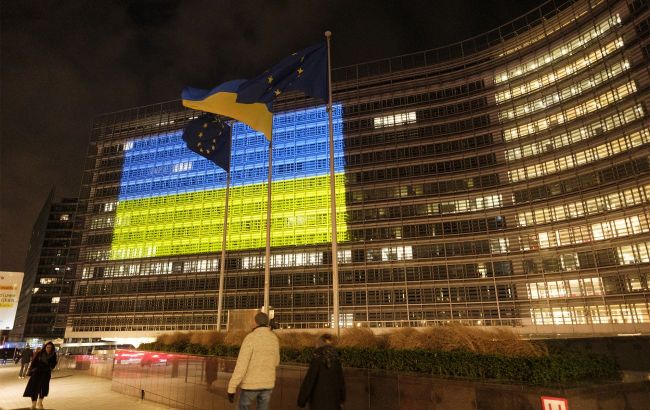$140 billion Ukraine aid at risk as Belgium issues ultimatum to EU
 Photo: Belgium refuses to agree to EU scheme (Getty Images)
Photo: Belgium refuses to agree to EU scheme (Getty Images)
Belgium has presented the European Union with a difficult choice. On the eve of the October 23 summit, Brussels stated that it would not support a €140 billion loan to Ukraine without legal guarantees and full risk sharing among all EU countries, according to Politico.
EU capitals are trying to allay Brussels' concerns ahead of the decisive EU leaders' summit on October 23. Reaching a political agreement at the summit will allow the bloc to put forward a legal proposal shortly thereafter.
Among the 27 EU countries, Belgium has the largest share, as it is home to the Euroclear financial depository, which holds most of the Russian state assets frozen after Russia's full-scale invasion of Ukraine in February 2022.
The Belgian government fears that the country could be held liable for legal and financial claims that Russia could potentially bring. Brussels is therefore demanding guarantees from all EU countries that the risks will be shared equally, even if this means using taxpayers' money to cover possible costs.
Belgian Prime Minister Bart De Wever suggested that the Commission's plan to use frozen Russian assets is effectively equivalent to confiscation.
"These guarantees cannot be limited to the €170 billion in cash that the Commission proposes to mobilize. The potential exposure could be much higher than the nominal amount," he said.
De Wever also stressed that the guarantees must remain in force even after the possible lifting of sanctions, as arbitration proceedings could take years.
In his statement to European leaders on October 1, the prime minister outlined the red lines that Belgium is not prepared to cross. These include:
- No support for any measures that could be interpreted as asset confiscation;
- Legally binding guarantees of risk sharing among all EU countries;
- An agreement on the immediate accumulation of funds in case Euroclear is forced to return assets to Russia after a possible peace agreement.
"The statement by the Belgian prime minister raised lots of difficult questions and they are still being examined. The guarantees must be sound at the end of the day," said a senior EU official.
What EU planning
The European Commission has proposed using €175 billion in profits from frozen Russian state assets invested in Western government bonds to finance a €140 billion reparations loan to Ukraine and repay the previous G7 loan.
These funds are currently on deposit with the European Central Bank under the management of Euroclear.
Russian frozen assets
After Russia's full-scale invasion of Ukraine, Western countries imposed a series of tough sanctions against Russia. In particular, they froze Russian assets abroad.
According to IMF estimates, the volume of such assets in 2024-2025 exceeds $300-350 billion. It is difficult to establish accurate data due to the distribution of funds across different jurisdictions.
The European Union is considering the possibility of using frozen Russian assets to provide Ukraine with a so-called reparations loan.
The loan is to be repaid only after Ukraine receives compensation from Russia.
However, Belgian Prime Minister Bart De Wever has expressed doubts about using frozen Russian assets to finance loans to Ukraine.

